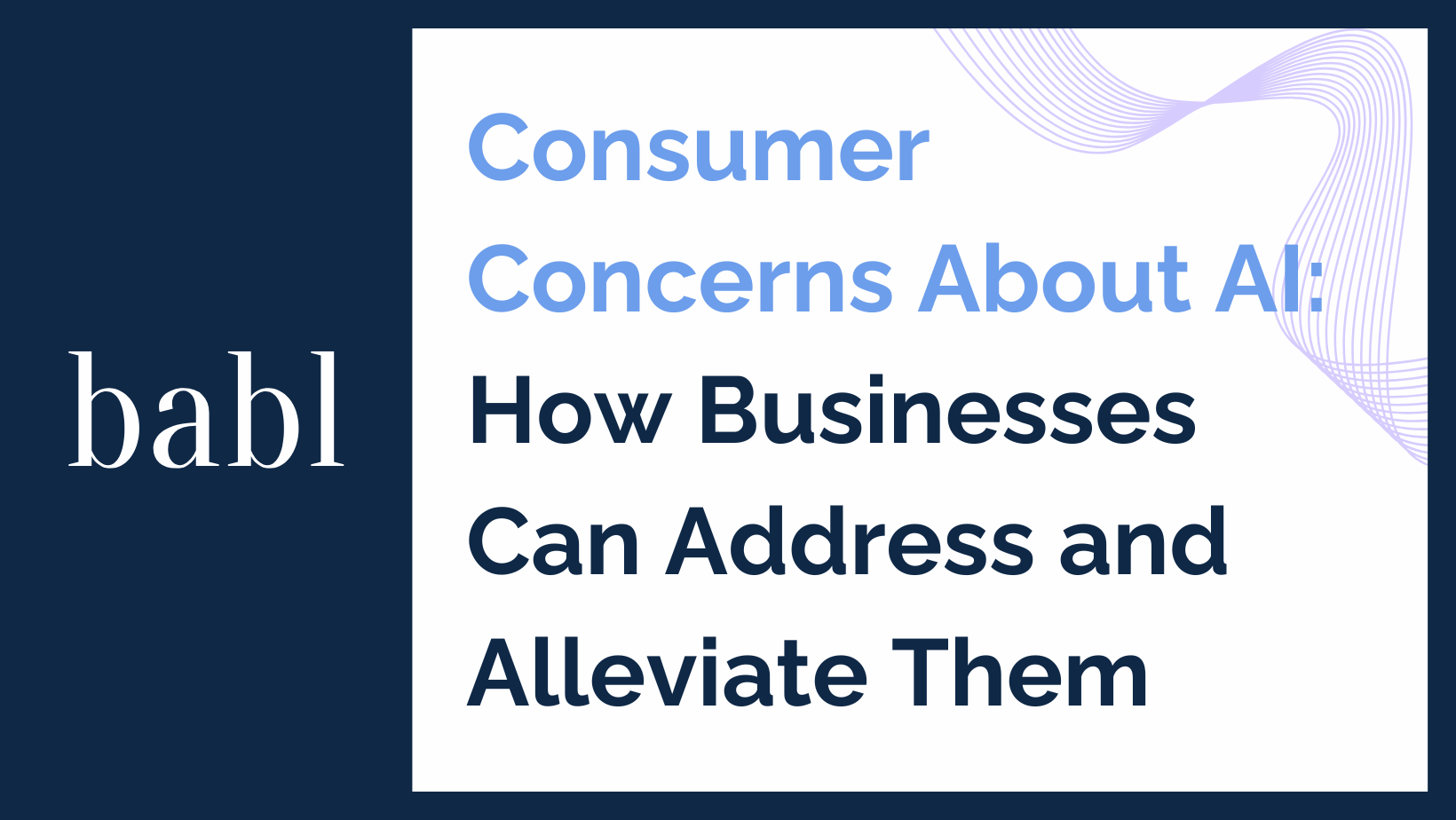Artificial intelligence (AI) has rapidly become an integral part of modern life, influencing everything from daily tasks to business operations. However, as AI technologies continue to evolve, so do consumer concerns regarding their use. These concerns primarily revolve around privacy, bias, and the potential misuse of data. In this blog post, we will explore these issues in depth and discuss strategies businesses can adopt to address and alleviate these concerns, ultimately building trust and fostering positive relationships with consumers.
Understanding Consumer Concerns About AI
Privacy and Data Security
One of the most significant concerns consumers have about AI is the handling of their personal data. With AI systems increasingly relying on large datasets to function effectively, the risk of data breaches and unauthorized access to sensitive information grows. Consumers are particularly worried about how their data is collected, stored, and used by companies, fearing that it could be misused or fall into the wrong hands.
Bias and Discrimination
AI systems, especially those used in decision-making processes like hiring or lending, have been criticized for perpetuating biases. These biases often stem from the data used to train the algorithms, which may reflect historical inequalities or societal biases. This can lead to unfair treatment of certain groups, further eroding trust in these technologies.
Transparency and Accountability
The “black box” nature of many AI systems, where the decision-making process is not easily understandable, raises concerns about transparency and accountability. Consumers want to know how decisions affecting them are made and who is responsible if something goes wrong. The lack of clear communication about how AI systems operate can lead to mistrust and skepticism.
Strategies for Addressing Consumer Concerns
-
Enhance Data Privacy and Security
To alleviate concerns about data privacy, businesses must prioritize robust data security measures. This includes implementing encryption, access controls, and regular security audits to protect sensitive information. Additionally, companies should be transparent about their data collection practices and provide clear, easily accessible privacy policies. Ensuring compliance with data protection regulations, such as the General Data Protection Regulation in Europe, can also help build consumer confidence.
-
Mitigate Bias in AI Systems
Addressing bias in AI requires a multifaceted approach. First, businesses should conduct regular audits of their AI systems to identify and mitigate biases. This involves using diverse and representative datasets for training and testing AI models. Companies can also adopt fairness-aware machine learning techniques to ensure that their systems treat all users equitably. Moreover, involving ethicists and diverse teams in the AI development process can help identify potential biases and ethical concerns early on.
-
Improve Transparency and Explainability
Transparency is crucial for building trust in AI systems. Businesses should strive to make their AI systems more explainable, meaning they should be able to provide clear, understandable explanations for how decisions are made. This can be achieved through explainable AI techniques that help demystify complex algorithms. Additionally, companies should be open about the limitations of their AI systems and the steps they are taking to improve them.
-
Foster Accountability
To build trust, businesses must establish clear lines of accountability for AI-related decisions. This includes having designated teams or individuals responsible for overseeing AI ethics and compliance. In case of errors or misuse, companies should have a process for addressing grievances and compensating affected individuals. Publicly committing to ethical AI practices and being transparent about how these principles are enforced can further enhance accountability.
-
Engage with Stakeholders
Regularly engaging with stakeholders, including customers, employees, and regulators, is vital for understanding and addressing concerns. Businesses can use surveys, focus groups, and public forums to gather feedback and refine their AI strategies. Transparent communication about how stakeholder input is used to improve AI practices can help foster a sense of trust and inclusion.
-
Education and Awareness
Educating consumers about AI technologies and their benefits and risks is another crucial strategy. This can involve creating educational content, hosting workshops, or collaborating with educational institutions. By demystifying AI and providing resources for consumers to learn more about the technology, businesses can help alleviate fears and misconceptions.
The Business Case for Addressing Consumer Concerns
Addressing consumer concerns about AI is not just a matter of ethical responsibility; it also makes good business sense. Trust is a valuable asset in today’s marketplace, where consumers have more choices than ever. Companies that prioritize transparency, privacy, and fairness in their AI practices are likely to see increased customer loyalty, positive brand perception, and competitive advantage.
Moreover, businesses that proactively address these issues are better positioned to navigate the evolving regulatory landscape. With governments worldwide increasingly scrutinizing AI practices, being ahead of the curve in terms of compliance can help companies avoid legal pitfalls and potential fines.
Conclusion
As AI technologies continue to evolve and integrate into daily life, addressing consumer concerns is critical for building trust and ensuring sustainable growth. By enhancing data privacy, mitigating bias, improving transparency, and fostering accountability, businesses can not only alleviate consumer fears but also strengthen their market position. Engaging with stakeholders and investing in education further solidify a company’s commitment to ethical AI practices, ultimately benefiting both the business and its customers.
In an era where trust is paramount, companies that take proactive steps to address AI-related concerns will not only comply with regulatory standards but also gain a significant competitive edge in the marketplace.
Need Help?
AI compliance can be overwhelming to understand, so don’t hesitate to reach out to BABL AI. Their team of Audit Experts can provide valuable insights on global laws and regulations.





